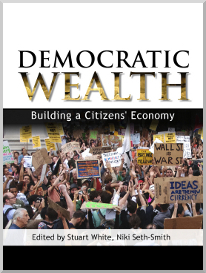In the turbulent times that lie ahead, the search for anti-racist futures has acquired a new degree of urgency.
The EU referendum has transformed British politics. In just a matter of weeks a devastatingly rightward shift has become evident. It is a shift defined, above all, by the politics of race and nation.
Let us briefly map the terrain: a socialist MP has been murdered by a fascist on account of her support for Syrian refugees entering Britain. Overt racism is becoming normalised in a way not seen since the late-1970s, so much so that last week Nigel Farage felt confident enough to brandish a billboard explicitly invoking colour-coded racism and fear of the ‘non-white other’. Later that same day, a video emerged of England football fans taunting and throwing coins at Roma children in Lille. This came on the back of footage of the same supporters chanting “fuck off Europe, we’re all voting out”. The deep-seated, racist resentment that has been unleashed by the politics of Brexit is creating a climate in which some migrants and British-born minorities will be looking at their options. The terms of this debate have been set entirely by the right, from the neoliberal mainstream to the fascist extreme. The left, owing to its historic position of weakness, is simply nowhere in this discussion. In short: we are in a state of emergency.
Brexit and the English question
The racism of this referendum campaign is characterised by a deep sense of retreat and loss of prestige. It is about retreating from the damaging impact of a globalised world that is no longer recognisable, no longer ‘British’. You can locate this sentiment pretty much anywhere in Britain, but it is found in its most concentrated form in England. The decline of empire has not led to the overcoming of the English imperial complex, but its retraction into a defensive exclusionary imaginary: ‘we are under siege, it is time to pull up the drawbridge’. This is the force behind the racism that has been unleashed.
It is true that politicians and the mainstream media have played a key role in bringing about this corrosion of basic, multicultural, civic values. Yet we sometimes forget that racism speaks to people, it meets them ‘where they are at’. The racialized codes of belonging that have come to shape dominant understandings of Englishness over the past century continue to assert themselves in the popular imaginary.
Unlike the anti-racist left, politicians such as Nigel Farage have very little work to do: he can parachute into a constituency and let racism do its work, since he is able to draw not just on the ‘mainstream political consensus’, but on active and deeply embedded forms of consciousness. By drawing on these elements, the racism of the Leave campaign is able to win ground, since it speaks to currents that have been secured over a long period of time; their trace and resonance is found in ‘popular inventories’, as Stuart Hall once put it, and the racist right know exactly where to look.
This is a racism that also reaches across a range of class positions. It speaks to the defenceless working class subject, squeezed by the flexibility of his or her precarious position; it resonates with the increasingly parochial and isolated English national bourgeois. Self-ascribed whiteness and the allures of the nation bind these oppositional class forces at the ballot box.
Immigration: the racialization of the EU referendum
As is now clear, the EU Referendum is defined by a single issue: immigration. This has been brewing for some time. In the 1980s and 1990s, no more than 10% of the UK population saw immigration as a key issue. The hardening of attitudes in more recent years has seen that figure rise dramatically to 30-40%, such that by 2006 immigration was recorded as the most important issue facing the country.
What often gets lost, however, are the horrific consequences that this has within the daily lives of many racialized minorities. In England, one hundred and thirty racist incidents occur on average every single day, and this figure accounts for only those incidents reported to the police. Despite the rich multiculture of many British cities, racism continues to structure the daily lives of racialized minorities, the vast majority of which live in England. It is difficult to see how the politics of this referendum campaign will do anything other than to entrench and extend this everyday racism.
The implosion of the Left and the fallacies of ‘Lexit’
Despite the mounting racism both here and across Europe, many socialists seem committed to a so-called 'Lexit' strategy. An exit on left terms would require a number of things to be in place: the potential for left-wing arguments to actually be heard, an audience willing to listen, a group of organic intellectuals capable of winning workers over to socialist and anti-racist arguments within the trenches of civil society - yet not one of these conditions exist in this referendum. Brexit might be a 'blow' for the British ruling class as ‘Lexiters’ claim; it will likely mean something much, much worse for those who are at the sharp end of racism.
When set in a wider European context, the desperateness of our situation becomes even clearer: the far right are in the ascendency in the majority of European states. A Brexit and possible break-up of the EU would see the far right further vindicated across Europe. Have ‘Lexiters’ thought seriously about how this might unfold, for example, in central and east Europe, where racist nationalism, far-right Euroscepticism and anti-migrant sentiment are being secured at the level of the mainstream? In some parts of Europe, working out a strategy for resisting the actuality of fascism is fast becoming an urgent task.
Beyond June 23: resources of hope
Where, then, can we locate the resources of hope? The strategies that succeeded in the radical struggles of the past will not translate directly to the present. The hollowing out of a socialist culture, the decline in organised anti-racism and the utter retreat of the labour movement over the past 25 years have put us in an unprecedented situation.
Possible bulwarks against racist resentment in Britain today are not easily identifiable, and nor are they readily available in a political sense. However, we can perhaps offer a sketch of where they might lie. The multi-ethnic composition of England – a direct consequence of Empire – has reservoirs of resistance, those minority communities in which the struggles of past and present injustices are deposited. Any push back against the exclusionary narrowing of Britishness and Englishness will involve those who directly incur the injuries of racism.
In a more everyday sense, there is hope to be found in the very fact of contemporary multi-ethnic life in Britain. We are, to put it simply, much more entangled in each other’s lives. Nearly one in ten people in England and Wales are involved in a mixed relationship, and nearly half of these involve someone from the majority ‘white’ population. The retreat of collectivism that has come to define the neoliberal era has also been accompanied by the emergence of an everyday multicultural reality, particularly among younger generations. Therein, perhaps, lie the seeds of a future push back against the racist present.
Those who are thirty-five and under grew up in the slipstream of the anti-racist struggles of the 1970s and 1980s. They encountered a Britain transformed by the marginal – but nevertheless very real – gains of the anti-racist movement that preceded them (equality provisions at work, multicultural education in schools, an established anti-racist civic culture and so on). However much these gains are being rolled back, their imprint is traceable in the ease with which many young people handle the lived realities of multi-ethnic life in Britain. In this sense, the anti-racist victories of the past have their returns in the present, even though the political conjuncture could not be more different.
In twenty first century Britain, once again, the right of some to live and breathe the same air as the ‘majority population’ is under question. The targets are both new and familiar: European migrants, refugees from the Global South, and those black and brown British communities whose status has always been challenged by the stain of a racializing white nationalism. Turbulent times lie ahead; the search for anti-racist futures has acquired a new degree of urgency.









